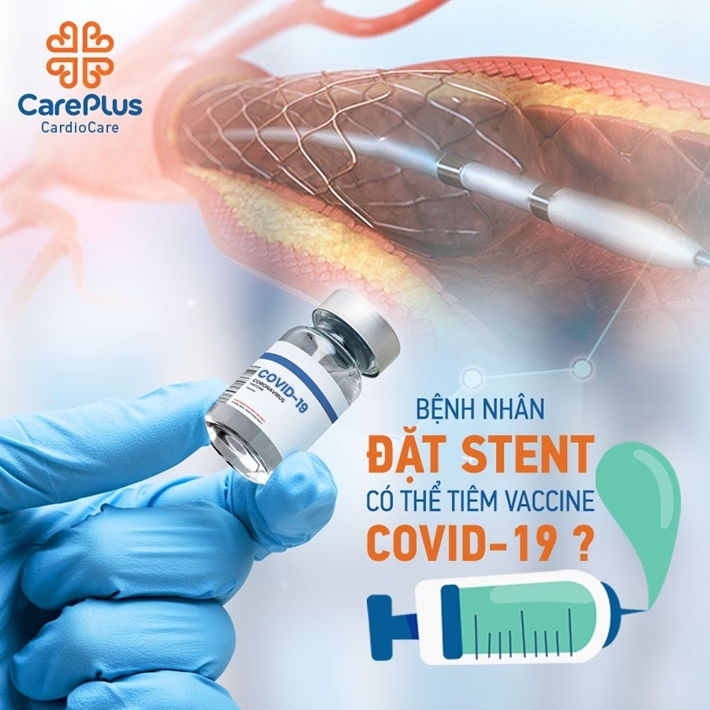Is the Covid-19 vaccine safe for coronary stent patients?
According to the regulations on vaccination of Covid-19 vaccine for people with stable underlying diseases, they are subject to caution, must be vaccinated and monitored in hospital. Patients with stents are one of these subjects. However, in some cases, admission to the hospital continued to be delayed due to contraindications. Or someone is asked to stop the stenting drug 5-7 days after receiving the vaccine.

8/10/2021 12:27:00 PM
Before many questions from readers sent to CarePlus, Dr Phung Ngoc Minh Tan, Cardiology Department of CarePlus International Clinic System, had the following answers.
THE TRUTH IS...
1. Taking anticoagulants is not a contraindication to vaccination
This drug does not have any serious interactions with the Covid-19 vaccine. The only concern is the risk of bleeding at the injection site. Even patients with an inherited blood clotting disorder such as haemophilia are still not contraindicated to the Covid-19 vaccine.
2. Stenting drugs are antiplatelet drugs, not anticoagulants
It's a bit wordy, but it's something like this. There are three types of anti-clotting drugs: fibrinolytic drugs (for emergency treatment of stroke, myocardial infarction), anticoagulants (the injectable form with Heparin, Lovenox; oral form with Sintrom, Pradaxa, Xarelto) and anti-diuretic drugs. Requirements (drugs that place stents or take oral: Aspirin, Brilinta, Plavix, Prasugrel).
According to screening regulations, "anticoagulants" are vaccination cautions, not antiplatelet drugs. It is also true of the fact that the risk of bleeding decreases in the following order: thrombolytics (highest) > anticoagulants > antiplatelet agents (lowest).
3. Is it necessary to stop the stent for a few days to inject?
No, not! With that said, there are no interactions between the drug and the Covid-19 vaccine. Withdrawal of stents carries a risk of stent thrombosis, very high mortality if stent thrombosis occurs: 50-90%!
Discontinuation is only considered when SURGERY because of the high risk of bleeding, and in that case, only one medication is stopped, usually with aspirin. As for the injection with a tiny needle-like ant biting a bit, the infusion is finished and pressed firmly for about 10 minutes (without rubbing or rubbing) is enough. Bleeding can also be managed well but is not as dangerous as a blood clot blocking the stent.
4. What to do while taking stents and taking anticoagulants?
It often occurs in patients with both stent implantation, atrial fibrillation, or mechanical valve replacement. If you are taking Sintrom, you should check the IRN within 72 hours before the injection. If the results are satisfactory for treatment, you will be given an injection (you should bring test results when you go).
The rest of the drugs do not need to be tested. Taking anticoagulants is not a contraindication. However, if you have spontaneous bleeding in many places: bruises in muscles, joints, nose and mouth bleeding, black stools, vomiting blood. In acute cases, injections will be postponed.
Therefore, patients with stents should rest assured to get the Covid-19 vaccine as soon as possible. If you have a problem, boldly connect the cardiologist who is treating you with the screening doctor so that you can make the best choice for your health.